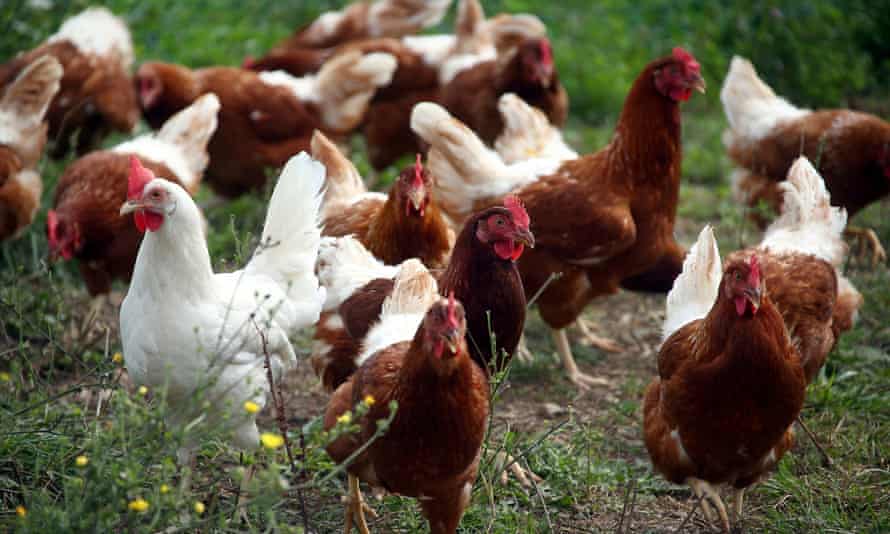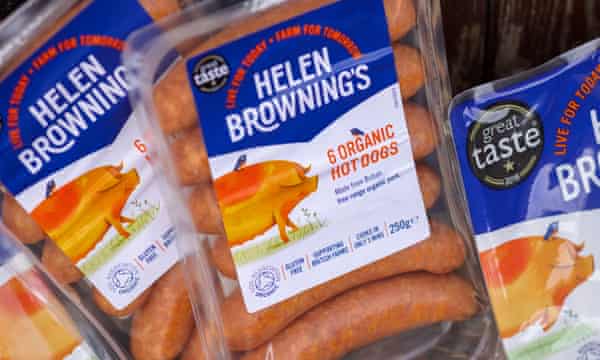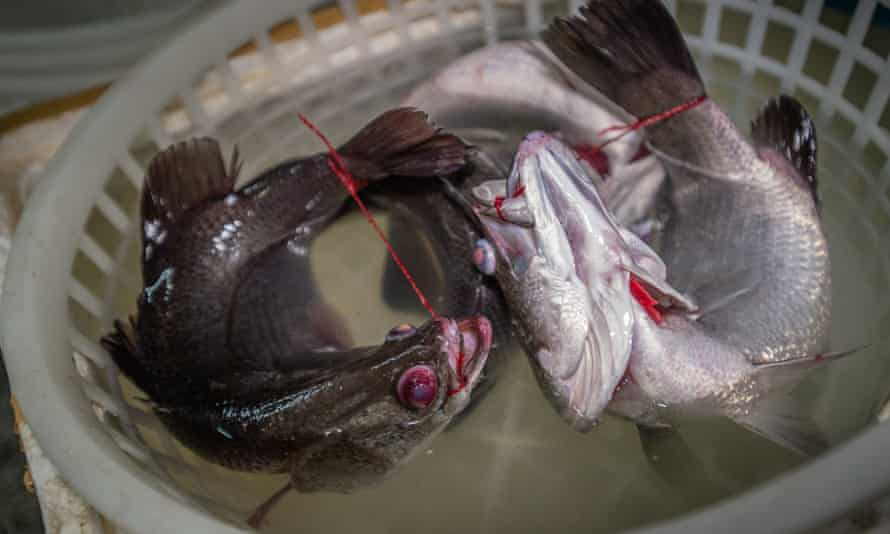News from around the world
Outbreaks of Covid-19 continue at meat-processing plants in the US, according to the Food and Environment Reporting Network, which reports a lack of information, protective gear and adequate distancing. In total, its data analysis found, just under a third of meat-plant workers in the US have been infected by the virus and at least 284 have died.
In Brazil, a court has ordered JBS, the world’s largest meat company, to pay 20m reais (GBP2.6m) in damages after an outbreak of Covid-19 at a beef plant in the north of the country, according to a copy of a ruling seen by Reuters. JBS has declined to say whether it would appeal, saying it does not comment on ongoing litigation and adding that its main goal is to protect the health and security of its 145,000-strong workforce in Brazil.
The devastating impact of Covid outbreaks on Europe’s mink farms has not been replicated in China, the world’s largest producer. Despite the potential disease risks posed by mink farming, China has done little to regulate its multibillion-pound fur industry, reports Corporate Watch, which said Chinese producers are making the most of the global fall in production and rising prices.
There were more than 1,000 outbreaks of bird flu in EU/EEA countries and the UK between December 2020 and February this year, with half of them on poultry farms, according to the European Food Safety Authority. France topped the list for outbreaks with more than 400, mostly in the Landes region, an area with a high density of poultry, badly affecting its foie gras industry.
China’s largest pork producer, WH Group, has said it will keep meat imports high for the rest of the year as prices are expected to remain elevated due to new outbreaks of the deadly pig disease African swine fever (ASF) in the country. Germany, Poland and the Czech Republic have agreed that intensified hunting of wild boar is needed to combat an outbreak of ASF among wild animals in all three countries.
Aquaculture production tripled between 1997 and 2017, according to a paper published in Nature. Asia is the largest producer, accounting for 92% of production by weight in 2017. In the US, the fish company AquaBounty is due to launch its genetically modified salmon in the US this month; it sent samples to consumers earlier this year.
More than 60,000 chickens have been destroyed at an Irish meat processor after tests identified the birds may have been reared using unauthorised antibiotic growth promoters. Carton Bros, Ireland’s largest poultry processor, have said routine tests raised the possible use of unauthorised antibiotics. The company said it notified the Department of Agriculture, Fisheries, and the Marine and told the Anglo-Celt newspaper that “any potential threat to food safety has been avoided by these proactive and precautionary measures”.
Separately, the supermarket chains Aldi and Lidl have strongly disputed claims made by the Irish Farmers’ Association about the use of “phantom farm” brands on products. Aldi said all its products were correctly labelled and that it was transparent about the Irish producers supplying its stores. Lidl said it disputed the allegations.

News from the UK
Heat stress in cattle is likely to be a bigger problem for cows in the UK in the future, leading to loss of productivity, according to a Met Office study. Proposed solutions include better building ventilation, installing fans and misting systems, and grazing cattle at night and housing them during the day in hot periods.
UK pig farmers have called for GBP3m in aid to offset the impact of Brexit border delays and Covid outbreaks at UK meat plants. Farmers in Scotland and Northern Ireland have already received some support. China has also banned pork shipments from three UK plants affected by Covid, costing a reported GBP600,000 a week in lost sales.
Chickens will be allowed outdoors again this month after the UK government lifted its indoor-housing order, imposed to reduce the risk of outbreaks of bird flu. Outbreaks of the H5N8 strain in Gloucestershire, Dorset, Devon, Cheshire and Kent were detected in November, leading officials to implement a prevention zone in England, Scotland and Wales.

A UK food company has decided to stop using British pork in its sausages because of the post-Brexit complications of moving meat across borders. Helen Browning’s Organic says it is switching to Danish suppliers due to bureaucracy, delays and costs.
The UK is said to be considering a post-Brexit ban on the import of foie gras. Production of foie gras was banned in Britain in 2006, but imports have been allowed to continue since then, with Britain buying in an estimated 200 tonnes a year. The UK environment minister Zac Goldsmith has called the production of foie gras “unbearably barbaric”.
From the Animals farmed series
It’s spring and time for cows – those not permanently housed indoors – to be turned out to pasture. Cows are happier if they have the choice to go outdoors, according to researchers, but it’s the open space and soft ground to lie on they crave most, not the grass.
Farmed fish suffer pain and stress, says a report that criticises welfare failings and calls on the industry to focus on cultivating species with less complex needs.
Animal testing has been suspended at a Spanish laboratory after footage appearing to show “gratuitous cruelty” was published. The Madrid-based contract research organisation Vivotecnia conducts experiments on a range of animals including monkeys, dogs, pigs, rats, mice and rabbits for the biopharmaceutical, chemical, cosmetic, tobacco and food industries. The chief executive of Vivotecnia, Andres Konig, told the Guardian the images had left him “shocked and dismayed” and said some were “especially appalling” as they violated the company’s written protocols. He did not believe the images reflected the day-to-day reality at Vivotecnia, he said, adding: “Even if this is an isolated occurrence, it demands that we take strong measures to prevent this from ever happening again.”

The three-month ordeal of thousands of cattle stranded on two ships in the Mediterranean finally came to a close last month. The ships were ordered to return to Spain for the animals to be humanely slaughtered. We’ve recounted the story here, starting back in December 2020.
At least 20 livestock ships were caught in the Suez canal logjam. Meanwhile in Canada, activists have been raising attention over tens of thousands of horses subjected to long-haul flights, confined in crates with no food or water, to meet demand for horsemeat in Japan.
As the Brazilian meat multinational JBS pledged to reach net zero emissions by 2040 amid record profits, we reported on how Chinese demand is driving Brazil’s booming beef exports.
Campaigners are urging the UK to ban fur imports from China over animal abuse claims. China bred more than 14 million foxes, 13.5 million raccoon dogs, and 11.6 million mink in 2019 to provide fur for export. The UK imported more than GBP55m worth of fur in 2019, including GBP5.3m from China, according to Revenue & Customs data. A spokesperson for the British Fur Trade Association said campaigners calling for the ban had failed to provide evidence that the farms featured in their investigations provided fur that ended up in the UK.
Sign up here for the Animals farmed monthly update to get a roundup of the best farming and food stories across the world and keep up with our investigations. And you can send us your stories and thoughts at animalsfarmed@theguardian.com.